Publication
August 10, 2022
SEEMS-Nutrition project advances work on evaluating benefits of nutrition-sensitive interventions for maternal-child health
Categories: Conferences, Nutrition, Publication, Research
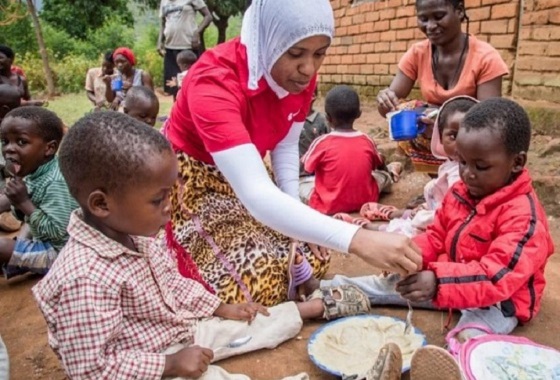 Following a two-year funding extension starting in November 2021, the Strengthening Economic Evaluation for Multi-sectoral Strategies for Nutrition (SEEMS-Nutrition) project has continued progress to collect cost data alongside six on-going interventions, and to generate new evidence on costs and cost-effectiveness of multi-sectoral nutrition projects in five country settings. This past year, the team published two new manuscripts and delivered an oral presentation at the 7th Annual Agriculture, Nutrition & Health Academy Week (ANH2022) on June 29th. (more…)
Following a two-year funding extension starting in November 2021, the Strengthening Economic Evaluation for Multi-sectoral Strategies for Nutrition (SEEMS-Nutrition) project has continued progress to collect cost data alongside six on-going interventions, and to generate new evidence on costs and cost-effectiveness of multi-sectoral nutrition projects in five country settings. This past year, the team published two new manuscripts and delivered an oral presentation at the 7th Annual Agriculture, Nutrition & Health Academy Week (ANH2022) on June 29th. (more…)
June 29, 2022
New publication in the Lancet Microbe on CRISPR detection of tuberculosis in adults and children with HIV.
Categories: HIV and Co-Infections, Publication
Mycobacterium tuberculosis (TB) remains a major factor in global morbidity and mortality, especially for adults and children with HIV. Coinfection of HIV and tuberculosis is uniquely dangerous, as the depression of normal immune response to infection in persons with HIV can lead to both severe illness and the underdiagnosis of TB when using sputum-based assays. Collecting sputum from young children presents further issues. A new molecular diagnostics study by UW Global WACh in collaboration with Tulane University and other partners including Baylor College of Medicine, Baylor Children’s Foundation-Eswatini, University of Nairobi and Kenyatta National Hospital in Kenya, to study the effectiveness of CRISPR-based assay detection of M. tuberculosis cell-free DNA (Mtb-cfDNA) in seropositive adults and children was published in The Lancet Microbe May 2022 edition. (more…)
May 25, 2022
New publication on childhood mortality during and after acute illness in Africa and South Asia in the Lancet Global Health
Categories: Gut Health and Child Survival, Publication, Research
The April 2022 publication of the Lancet Global Health featured a new publication by CHAIN Network researchers at UW’s Global WACh Research Center and our international partners – “Childhood mortality during and after acute illness in Africa and South Asia” a prospective cohort study”. The study aimed to investigate the rates of and associations behind deaths in hospitalized children across nine hospitals in six countries in sub-Saharan Africa and South Asia. The study included 3,101 children and their caregivers, and revealed that out of the 350 deaths recorded, 48% were within six months of discharge from the hospital. (more…)
March 29, 2022
New publication on implementation of HIV retesting guidelines for pregnant and postpartum women in Kenya
Categories: HIV, Publication, Uncategorized
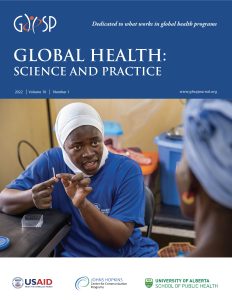 The February 2022 edition of Global Health: Science and Practice features a new publication by UW Global WACh students, Monalisa Penumetsa (DGH MPH alumni) and Epidemiology PhD student Jillian Neary, and faculty (Drs. Alison Drake and Grace John-Stewart)– “Implementation of HIV Retesting During Pregnancy and Postpartum in Kenya: A Cross Sectional Study.” The study aimed to measure the prevalence of maternal HIV retesting in Kenya, and HIV incidence among Kenyan mothers. (more…)
The February 2022 edition of Global Health: Science and Practice features a new publication by UW Global WACh students, Monalisa Penumetsa (DGH MPH alumni) and Epidemiology PhD student Jillian Neary, and faculty (Drs. Alison Drake and Grace John-Stewart)– “Implementation of HIV Retesting During Pregnancy and Postpartum in Kenya: A Cross Sectional Study.” The study aimed to measure the prevalence of maternal HIV retesting in Kenya, and HIV incidence among Kenyan mothers. (more…)
August 3, 2021
Researchers study text messaging to improve retention and viral suppression in prevention of mother-to-child HIV transmission programs in Kenya
Categories: HIV, mHealth, Publication, Research

Credit: Ivan Samkov/Pexels
Over the years, Global WACh utilized the Mobile WACh mobile health (mHealth) system that allows for both automated sending of tailored health-related short message service (SMS) text messages and two-way SMS interaction between participants and a health care provider in low- to middle-income countries for an array of maternal-child health (MCH) research studies. The system sends messages through mobile phones, which have the potential to enhance access and reach of crucial health service interventions and to improve health outcomes.
Researchers of the Mobile Strategies for Women’s and Children’s Health: Optimizing Adherence and Efficacy of PMTCT/ART (Mobile WACh X) randomized clinical trial, funded by the National Institute of Health and led by Principal Investigator Grace John-Stewart, adapted Mobile WACh to reach pregnant and postpartum women living with HIV at six MCH clinics in Kenya. Previous research has shown that interactive SMS can improve early antiretroviral therapy (ART) retention in perinatal women, but it was unknown whether long-term interactive SMS systems can durably improve retention and viral suppression in preventing mother-to-child transmission (PMTCT).
(more…)
May 18, 2021
Analysis of implementation costs of a nutrition intervention in Malawi childcare centers published in Food and Nutrition Bulletin
Categories: Children, Nutrition, Publication
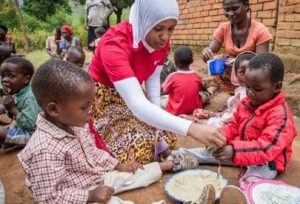 Women, infants, and children need the right quantity and diversity of nutritious foods to support healthy growth and development and to prevent an intergenerational cycle of malnutrition. Meeting this complex need requires coordinated efforts across sectors; however, there is a wide information gap on costs and cost-effectiveness of implementing nutrition intervention strategies that combine agriculture, health, and nutrition components.
Women, infants, and children need the right quantity and diversity of nutritious foods to support healthy growth and development and to prevent an intergenerational cycle of malnutrition. Meeting this complex need requires coordinated efforts across sectors; however, there is a wide information gap on costs and cost-effectiveness of implementing nutrition intervention strategies that combine agriculture, health, and nutrition components.
As part of the Strengthening Economic Evaluations for Multisectoral Strategies for Nutrition (SEEMS-Nutrition) initiative aimed to fill this gap, Dr. Carol Levin (Clinical Associate Professor, Global Health) and researchers at the International Food Policy Research Institute (IFPRI) examined the costs and benefits of an integrated nutrition and agriculture intervention designed to improve the nutritional quality of meals provided through Malawi’s community-based childcare centers (CBCCs)—finding its estimated benefits (assessed as part of a related impact analysis) outweighed the intervention costs. (more…)
April 9, 2021
Cost-effectiveness analysis leading to updated WHO maternal HIV retesting guidelines published in JIAS
Categories: HIV, Publication, Research
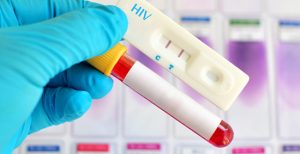
HIV rapid test and a blood sample vial (Credit: American Psychological Association)
A new manuscript by Global WACh researchers, trainees, and collaborators was published in the Journal of the International AIDS Society (JIAS) last week. The publication summarized the findings of the study, “Optimizing HIV retesting during pregnancy and postpartum in four countries: a cost-effectiveness analysis,” which examined the cost, impact, and cost-effectiveness of maternal HIV retesting timing and frequency in four countries—Colombia, Kenya, South Africa, and Ukraine. (more…)
November 20, 2020
Dual HIV/syphilis rapid diagnostic test cost-effectiveness analysis, that changed WHO recommendation, published in the Lancet Global Health
Categories: HIV and Co-Infections, Publication, Research
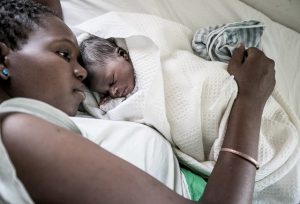
Dual elimination of mother-to-child transmission (MTCT) of HIV and syphilis is a public health priority. Global efforts for the prevention of MTCT of HIV have led to substantial reductions in new pediatric HIV infections, but progress for preventing congenital syphilis—a sexually transmitted infection that causes stillbirths and other infant health problems—is much slower. While dual HIV and syphilis RDT have some promise to curb pediatric HIV and syphilis, the cost-effectiveness of using these tests in antenatal care settings in a variety of settings has not been explored. (more…)
July 1, 2020
Randomized controlled trial of isoniazid to prevent primary TB infection in Kenyan HIV-exposed uninfected infants published in Clinical Infectious Diseases
Categories: HIV and Co-Infections, Publication, Research
Children born to mothers living with HIV are at an increased risk of tuberculosis (TB) infection, and young infants are particularly vulnerable to rapidly progressing to TB disease. Isoniazid preventative therapy (IPT) is used routinely to prevent TB after known TB exposure, but recent data suggest most transmission (70-90%) to young children occurs outside the household without identified exposure. Whether IPT can be used to prevent TB initial infection is unknown. (more…)
Previous page
